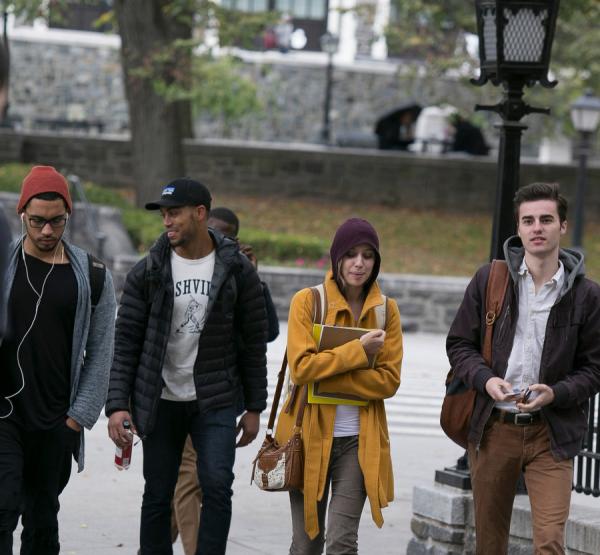
Students and faculty at CCNY (above) will see increased collaboration with their colleagues from Argentina’s Universidad Nacional de Tucumán (UNT). The two institutions are cementing a partnership established in fall 2018.
Long a magnet for students from all corners of the globe – with up to 93 % of the world’s sovereign states represented on its campus -- The City College of New York continues to pursue ties with schools abroad for collaborative research, scholarship and training. Argentina’s 70,000-student Universidad Nacional de Tucumán (UNT) is CCNY’s latest partner.
Early fruits of the CCNY-UNT partnership established last fall include online and hybrid training of government employees in Tucumán, in creative thinking and development of new strategies on social and institutional communication. It was provided by City College’s Division of Interdisciplinary Studies at the Center for Worker Education (CWE).
The collaboration is set to expand. On a trip to Tucumán province in northwest Argentina, a CCNY delegation led by College President Vincent Boudreau outlined plans to increase online classes.
“We’re planning two more classes this semester for the banking sector, and also plan online education in the areas of communication, film, remote sensing, radars and other fields,” said Juan Carlos Mercado, dean of the CWE, and a member of the CCNY delegation.
The remote sensing collaboration discussed by Boudreau and his counterpart, UNT President Jose Ramon Garcia, involves the CCNY-based NOAA-CREST. It’s a consortium that conducts cutting edge research, educates, and trains a diverse group of students, early career scientists, and engineers, in NOAA-related science missions.
The Argentines are interested in mobility for their researchers and students to gain expertise regarding techniques and tools to assess data problems like space weather monitoring, Mercado pointed out. “They have young students committed to learning about remote sensing, signal processing, design and deployment of remote sensing based technology.”
An impetus for scientists in Tucumán to increasing the number of sensors in the province to monitor weather is that the region is a leading exporter of lemons in the world, and a major producer of sugar cane and other fruits. More remote sensing would enable more accurate forecasts of flooding and drought.
The CCNY team also met with scientists and officials from the Universidad Tecnológica Nacional -- one of the top engineering schools in the country with more than 75,000 students – and Argentina’s national space agency CONAE. The conversation with the latter centered on CCNY’s possible collaboration in the SAOCOM Sensor mission, Argentina’s space satellite program designed to help predict and monitor the mitigation of natural disasters through changes in vegetation and other features.
Other members of the CCNY delegation to Argentina included:
- Gerardo Blumekrantz, Division of Humanities and the Arts;
- Jorge E. Gonzalez, NOAA-CREST;
- Reza Khanbilvardi, NOAA-CREST;
- Kyle McDonald, Division of Science; and
- Dee Dee Mozeleski, Executive Director, The Foundations for City College.
About The City College of New York
Since 1847, The City College of New York has provided a high quality and affordable education to generations of New Yorkers in a wide variety of disciplines. CCNY embraces its role at the forefront of social change. It is ranked #1 by the Harvard-based Opportunity Insights out of 369 selective public colleges in the United States on the overall mobility index. This measure reflects both access and outcomes, representing the likelihood that a student at CCNY can move up two or more income quintiles. In addition, the Center for World University Rankings places CCNY in the top 1.2% of universities worldwide in terms of academic excellence. More than 16,000 students pursue undergraduate and graduate degrees in eight professional schools and divisions, driven by significant funded research, creativity and scholarship. CCNY is as diverse, dynamic and visionary as New York City itself. View CCNY Media Kit.